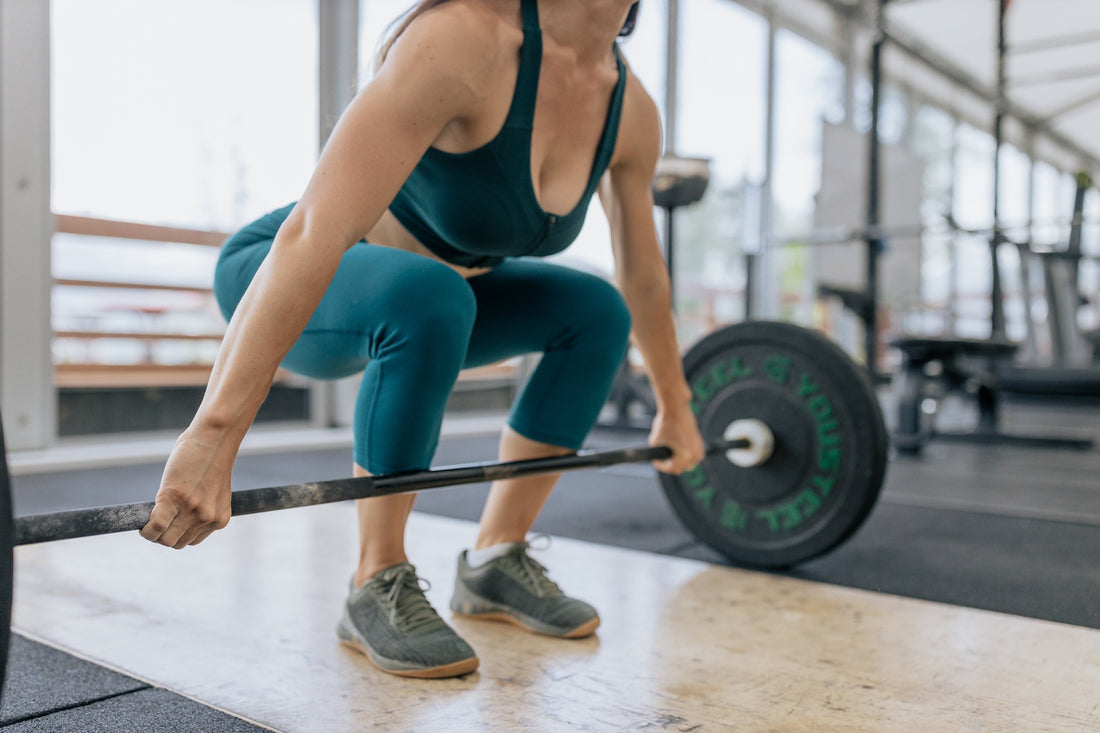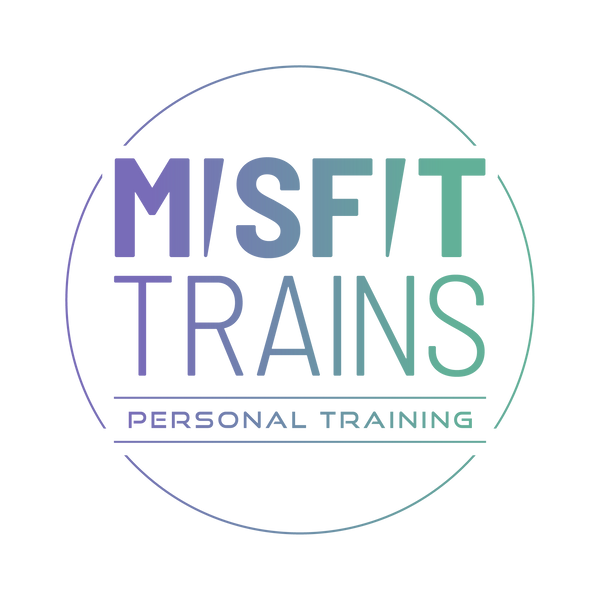
Weightlifting for Women: Before and After Menopause
Share
If you're a woman approaching or going through menopause, you may be experiencing a decrease in metabolism and an increase in body fat. These changes can be frustrating and difficult to manage, but weightlifting may be a solution. By building lean muscle mass, weightlifting can help boost your metabolism and burn more calories at rest.

Weightlifting is a form of exercise that involves lifting weights to build strength and muscle. It's often associated with bodybuilding and may not be the first choice for women looking to get in shape. However, weightlifting has numerous benefits for women of all ages, especially those going through menopause. Not only can it help improve overall health and fitness, but it can also help mitigate some of the changes that come with menopause, such as weight gain and decreased bone density.
Understanding Menopause and Its Impact
As a woman, you will experience menopause at some point in your life. Menopause is a natural biological process that marks the end of your menstrual cycles. It typically occurs between the ages of 45 and 55, but it can happen earlier or later. During menopause, your body undergoes hormonal changes, particularly a decrease in estrogen levels. This hormonal fluctuation can cause a wide range of symptoms, including hot flushes, night sweats, mood swings, vaginal dryness, and weight gain. None of which are very fun!
Perimenopause is the period leading up to menopause when your body begins to make the transition. This transition can last for several years, and during this time, you may experience irregular periods, mood changes, and other symptoms.
One of the most common symptoms of menopause is weight gain. Hormonal changes can lead to an increase in body fat, especially around the waistline. This weight gain can be frustrating and may lead to a decrease in self-esteem.
Weightlifting can be beneficial for women before and after menopause. It can help to increase lean muscle mass, which in turn boosts metabolism and burns more calories at rest (though never forget your Non Exercise Activity will still have a bigger impact). This can be especially important during menopause when hormonal changes can lead to a decrease in metabolism and an increase in body fat. Incorporating weightlifting into your fitness routine can help to increase lean muscle mass, boost metabolism, and burn more calories at rest, leading to a healthier and happier you.
Weightlifting Before Menopause: The Benefits

If you're approaching menopause, you may be wondering if weightlifting is a good exercise option for you. The answer is a resounding yes! Strength training and resistance training, which are forms of weightlifting, can provide a variety of benefits for women before menopause.
One of the most significant benefits of weightlifting before menopause is its ability to maintain and increase muscle mass. As women age, they tend to lose muscle mass and strength, which can increase the risk of falls, fractures, and injury. By incorporating weightlifting into your fitness routine, you can help to slow down this process and maintain your muscle mass and strength.
Another benefit of weightlifting before menopause is its positive impact on bone density. Weightlifting can help to increase bone density, which is particularly important for women as they age and become more susceptible to osteoporosis.
Weightlifting can also improve your metabolism, helping you to burn more calories even at rest. By building lean muscle mass, you can increase your resting metabolic rate, which means you'll burn more calories throughout the day, even when you're not exercising.
In addition to the physical benefits, weightlifting can also have a positive impact on your mental health and wellbeing. Exercise, in general, has been shown to reduce stress and improve mood, and weightlifting is no exception.
Overall, weightlifting before menopause can provide a range of benefits for women, including maintaining muscle mass, improving bone density, boosting metabolism, and enhancing mental wellbeing. So, if you're looking for an effective and efficient way to stay fit and healthy as you approach menopause, weightlifting is definitely worth considering.
Weightlifting During and After Menopause: The Advantages

Weightlifting is a form of resistance exercise that can provide numerous benefits for women during and after menopause. Here are some advantages that you can gain from weightlifting:
Improves Bone Health
As women age, they become more susceptible to osteoporosis, a condition that causes bones to become weak and brittle. Weightlifting can help prevent and even reverse bone loss by stimulating the production of new bone tissue. This is because weightlifting puts stress on your bones, which triggers the body to produce more bone cells.
Increases Muscle Strength and Lean Muscle Mass
Weightlifting can help you build and maintain muscle mass, which is important for maintaining a healthy weight and preventing age-related muscle loss. It can also help boost your metabolism, allowing you to burn more calories at rest.
Enhances Mood and Quality of Life
Weightlifting has been shown to improve mood and reduce symptoms of depression and anxiety. This is because exercise triggers the release of endorphins, which are feel-good hormones that can boost your mood and reduce stress.
Improves Sleep Quality
Weightlifting can also improve the quality of your sleep. Regular exercise has been shown to improve sleep duration and quality, which can have a positive impact on your overall health and wellbeing.
Strengthens Pelvic Floor Muscles
Weightlifting can also help strengthen your pelvic floor muscles, which can help prevent urinary incontinence and other pelvic floor disorders that are common among women during and after menopause.
Reduces the Risk of Heart Disease
Weightlifting can also have a positive impact on heart health by reducing the risk of heart disease. Resistance exercises like weightlifting can help lower blood pressure and improve cholesterol levels, which can reduce the risk of heart disease.
Improves Balance and Mobility
Weightlifting can also improve balance and mobility, which can help reduce the risk of falls and other injuries. This is because weightlifting helps strengthen the muscles that support your joints and improve your overall body control.
In conclusion, weightlifting can provide numerous benefits for women during and after menopause. Incorporating weightlifting into your physical activity routine can help improve bone health, muscle strength, mood, sleep quality, pelvic floor health, heart health, balance, and mobility, ultimately leading to a better quality of life.
Practical Tips and Guidance for Weightlifting
If you are a woman going through menopause, weightlifting can be a great way to maintain your strength and improve your overall health. Here are some practical tips and guidance to help you get started:
Choose the Right Exercises
When it comes to weightlifting, there are many different exercises you can do. Some of the most effective exercises for women going through menopause include squats, deadlifts, lunges, and bench presses. These exercises work multiple muscle groups at once and can help you build strength and endurance.
Incorporate Cardio Exercise
While weightlifting is great for building strength, it is also important to incorporate cardio exercises into your routine. This can help you maintain a healthy weight, improve your cardiovascular health, and boost your mood. Some great cardio exercises for women going through menopause include running, dancing, walking, and HIIT.
Pay Attention to Your Diet
In addition to exercise, your diet is also important when it comes to maintaining your health during menopause. Be sure to eat a balanced diet that includes plenty of protein, fruits and vegetables, and whole grains. You may also want to consider taking a protein supplement to help support your muscle growth.
Listen to Your Body
As you begin weightlifting, it is important to listen to your body and take rest days when you need them. This can help prevent fatigue and reduce your risk of injury. It is also important to stay hydrated and get plenty of sleep to help support your overall health.
Consider Hormone Replacement Therapy
If you are experiencing severe symptoms of menopause, such as hot flashes, night sweats, or insomnia, you may want to consider hormone replacement therapy (HRT). HRT can help reduce these symptoms and improve your overall quality of life. However, it is important to talk to your doctor before starting any new treatment.
Practice Kegels
Weightlifting can also help improve your bladder control and reduce your risk of incontinence. To further strengthen your pelvic floor muscles, consider practicing Kegels exercises.
In conclusion, weightlifting can be a great way for women going through menopause to maintain their strength and improve their overall health. By following these practical tips and guidance, you can get started on a weightlifting routine that is tailored to your needs and goals.
Work with a Personal Trainer
If you are new to weightlifting, it can be helpful to work with a personal trainer, like me! A trainer can help you learn proper form and technique, which can reduce your risk of injury. They can also help you create a workout plan that is tailored to your goals and fitness level. For more information on personal training, don't hesitate to reach out and speak to me.
